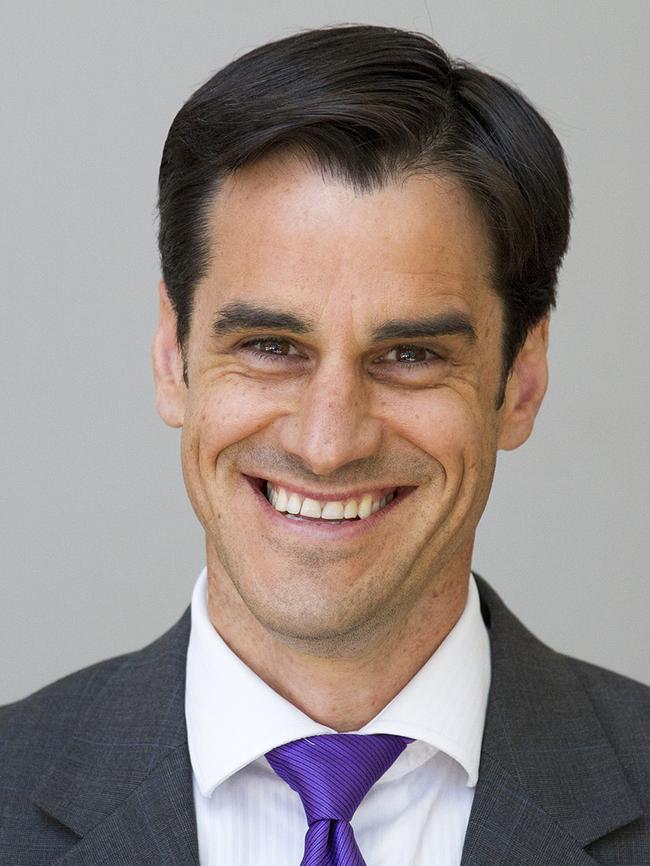Is it generational warfare, or generation not-share?
LOCKED out of housing and jobs, Australia’s younger generations are demoralised. The only way out is to throw it all out.
Business
Don't miss out on the headlines from Business. Followed categories will be added to My News.
LOCKED out of housing, jobs and a free education? Blame your parents.
Then maybe build your own dream instead of subscribing to theirs.
That’s the advice on the generational warfare which has Baby Boomer parents lamenting Gen Y’s inability to set themselves up with a house, kids and a steady job; and Gen Ys saying ‘if you guys would let go of the purse strings, and loosen the judgmental apron strings, and get out of the property market, maybe we could afford the house and get the job you so richly believe we deserve’.
Social researcher Mark McCrindle says while generational warfare is nothing new, the vagaries of the argument have changed.
“Generational conflict is alive and well,” McCrindle says of the frustration he’s seen emerge as Gen Y grows up and realises it’s missed out on affordable housing and education, jobs availability is sliding, and access to welfare is shrinking.
Some Baby Boomers — Gen Y’s bosses, parents and politicians — suggest the solution is to sacrifice, work harder, and whinge less.
But the reality is while our parents might not quite be ruining our lives, the saying ‘things were tougher back in my day’ might not strictly be true, McCrindle says.
“There’s a George Orwell quote which says ‘every generation imagines itself to be more intelligent than the one that went before it, and wiser than the one that comes after’, and that’s the thing, we all think our generation has it just right,” McCrindle says.
“Every generation polishes up how they appear, and perhaps finds fault in the other generations to highlight how they got it just right, and we are seeing the next version of that right now.”
“The younger generation say ‘we’re not getting our fair share financially, the older generation needs to move on and give us space and it’s our turn’. And the older generation say ‘we’ve paid our dues, you can’t expect to start your economic life in the way we are finishing ours’.”

Mr McCrindle says Gen Ys bring a valid financial argument to the power struggle.
“Certainly around the financial side there is objective evidence,” he says.
“Housing is less affordable. Living costs are higher. Degrees and education cost more and the universal access to health and education and public transport, roads and things Baby Boomers had are now privately provided and privately costed.”
So the ‘things were harder in my day’ argument isn’t quite stacking up.
Housing affordability is the biggest bug bear — Gen Y’s who lament they can’t get into the market which the Baby Boomers control are accused of being slackers who won’t make sacrifices — especially in city areas.
The Block Triple Threat couple Charlotte Ekas and Josh Terrett won $810,000 on the reality show last year, and were pilloried when they said the cash prize still wasn’t enough to buy in Sydney.
They found little sympathy when it was revealed they were only looking on the North Shore, but the fact remained even with $800,000 cash, they were being outbid at auctions. Possibly, by Baby Boomers.
“The average Sydney house price, in the mid-1970s when the Baby Boomers were starting their control of the property market was five times the average annual wage,” says McCrindle
“Now you have to take the average $80,000 fulltime adult wage and multiply 13 times to get a million dollar median house price. So you could say it is closing in on three times more expensive in terms of that ratio to buy a home today in Sydney.

“There are arguments both ways, but the outcome is the cost of living is now higher.
“Gen Ys start their earning years later, have more costs to bear to pay off their education, and this comes at a time when from a government funding perspective we have an ageing population, we have pension costs, superannuation liabilities are high for government and the main revenue stream has been income tax.
“So Gen Ys are bearing the burden of an ageing population that they don’t benefit from, and by the time they are of the same age, will not benefit from — because by then the system will be user pays.”
He says today’s workers face costs the older generation never imagines.
“There are some real living costs and future costs that this generation have to bear that just didn’t exist when their parents were the same age — mobile phone costs, Wi-Fi, digital subscriptions..
“You could say Netflix subscriptions aren’t needs, but some of these things have become the mainstream expectation, needed to do business.”
The solution?
McCrindle and financial expert Sam El Shammaa say some Gen Ys are now abandoning the dream of their own home and lifetime employment — by necessity and choice — and forming their own.
“The majority of new housing approvals in Sydney are not for detached home, they are for medium density homes. People are opting for the urban life, not the suburban life, and for many of them, the rental life,” says McCrindle.
People car share rather than buy their own wheels, backpack overseas now rather than save for the world trip on retirement.
“They place a higher premium on intangibles rather than tangibles,” McCrindle says.
El Shammaa says it’s harder for the younger generation ‘to accumulate that 10 or 20 per cent deposit for a home’, and many abandon the dream voluntarily rather than be burdened with a mortgage.
“Affordability is an issue for the younger generation. It’s not a simple as just saving up for a house — there is more to their lives,” he says.
“They have found different priorities. Some are very happy not to have their own houses. They are just as happy to pursue other investments, and enjoy the mobility it brings them.”
“I don’t know that the Baby Boomers had harder or easier times. They were simpler times.”
Gen Y’s might be a little short of a cold hard cash stash, but they have confidence in spades.
“There is a confidence in this generation — they are not looking for a job that gives them security and tenure,” says McCrindle.
“They feel future proofed. They feel if they need to upskill, they can. If they need to career change they will. They have faith they can do it differently.”
Ironically, the Baby Boomers gave them that.
Originally published as Is it generational warfare, or generation not-share?



